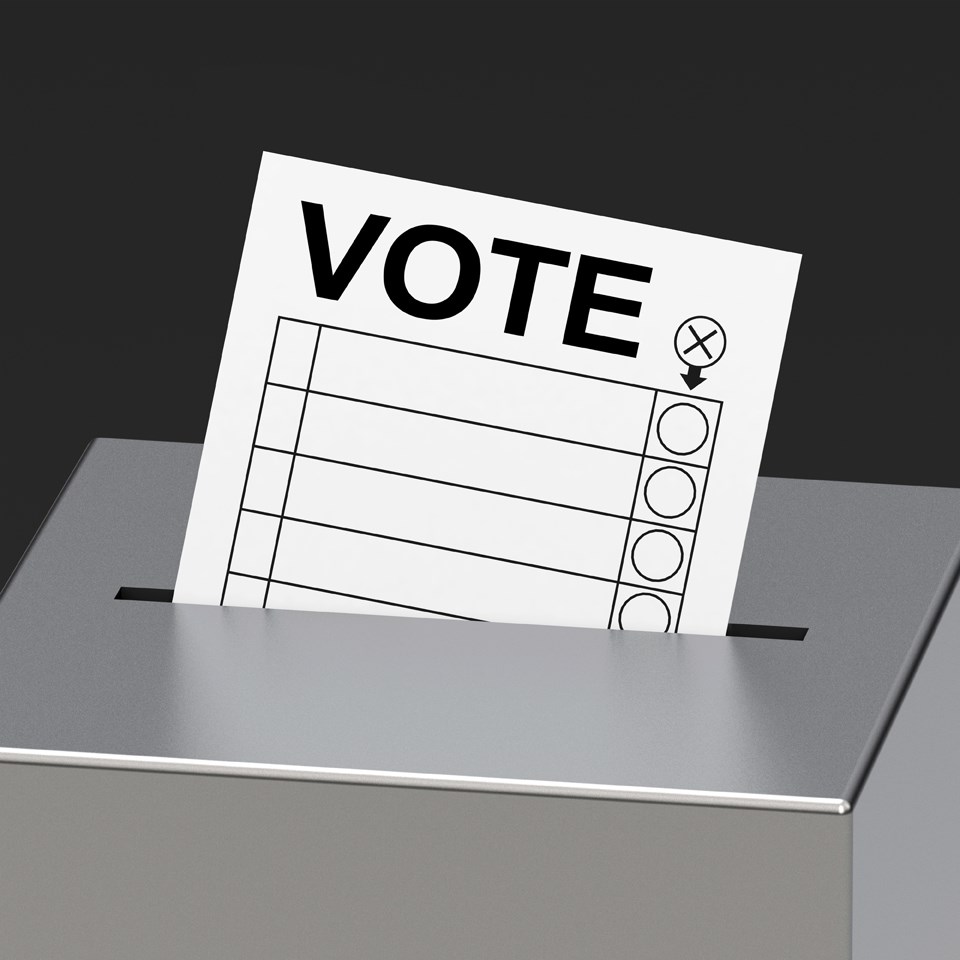A Queen’s Park couple is dismayed they won’t be able to vote in the 2018 civic election.
Keith Gagne and Diana Carr will be away on vacation for much of October – meaning they won’t be able to vote in the Oct. 20 local election or in the three advance voting days on Oct. 10, 13 and 17.
“Based on a phone call and visit to the election clerk at city hall, we have been informed that there is no way for us to vote, as the advanced polls start on Oct. 10,” Gagne said in an email to the Record. “Oct. 10 is just 10 days ahead of the polls and does not even accommodate someone who is taking a two-week vacation. This is a dereliction of the city’s responsibility to do everything possible to support the democratic process.”
Gagne said he was out of town during a federal election, and even though the ballots hadn’t yet been printed, he was able to write in the name of a candidate on a ballot provided by Elections Canada.
If the Local Government Act is the problem in allowing write-in ballots in civic elections, Gagne said the city should lobby the Ministry of Municipal Affairs to make changes. If the city’s bylaws are the problem, he said they must be changed.
“Accommodate the citizenry. Engage the people. Make it easy so we can try and get the per cent of people up,” he said. “Don’t put roadblocks in people’s way. Get rid of the damn roadblocks.”
As a “significant taxpayer” as the owner of two homes in the city, Gagne is troubled by “ridiculous, antiquated, bureaucratic” issues that are preventing him from voting.
“This is garbage,” he said. “Municipal elections have the lowest possible turnout of all of the elections we have, and they make it more difficult to vote than the provincial or federal elections. If there are people who are going to be away, you should be able to go in – if the ballots aren’t printed, fine, you just write the names of your candidates on an official piece of paper and stick it in an envelope.”
Gagne, who has lived in New West since 1988, said this will be the first time he hasn’t voted in a federal, provincial or municipal election since he was 19 years old. He believes municipal government is critically important as it affects people’s day-to-day lives.
“If you take a simple two-week vacation, you are disenfranchised,” he said of the time between advance polls and election day.
Carr said he will be checking election results online or on the radio while on vacation – and hopes none of the candidates lose by two votes, as those could represent potential votes from him and his wife.
The Record was unable to reach the Ministry of Municipal Affairs and Housing, which oversees the Local Government Act, or the city’s chief election officer for comments by deadline.
“The city has no flexibility to change the dates, advance the dates or change details of the election process at this late stage, this is governed by the Local Government Act. The city has provided residents statutory notice of the advance poll dates, locking them in stone. At this time the city is not able to offer mail ballots to out-of-town residents because the city’s bylaws do not permit it. While some larger municipalities do offer advance voting starting Oct. 6, most (like New Westminster) are beginning advance voting on Oct. 10, a legally required date articulated in provincial legislation,” chief election officer Jacque Killawee wrote in an email to the couple. “I understand your frustration at being unable to vote but the city is unable to make any changes to accommodate electors who may be on vacation during the election period.”
Following the Record’s press deadline, the Ministry of Municipal Affairs and Housing provided an email response about the issue of write-in ballots.
“Whether to provide mail ballot voting or special voting is the choice of the local government,” states the Ministry. “Local governments are required to provide at least two advance voting opportunities, one on the 10th day before general voting day, which is Oct. 10 this election year. If the municipality has a population of 5,000 or greater, they must provide another advance voting opportunity on a date the local government must establish by bylaw.”
“Local governments also have the authority under their election bylaw to offer mail ballot voting and special voting. Generally, mail ballot voting is intended to allow non-resident property electors, seasonal residents, electors in geographically remote locations, and people whose mobility or health is compromised, an opportunity to cast their ballot by sending it by mail prior to the close of voting on general voting day,” said the email from the ministry. “Special ballot voting typically occurs in health-care facilities or hospitals, and may be offered to electors who are otherwise unable to vote.”



